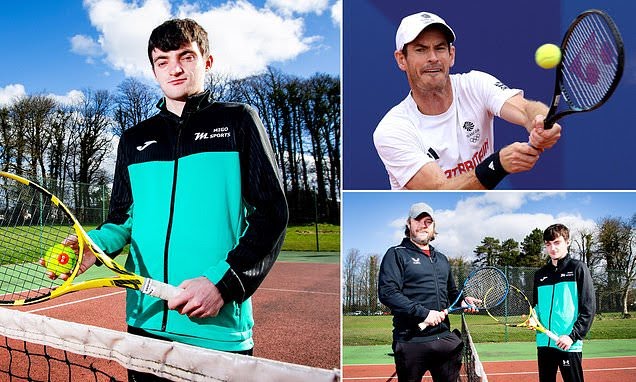For 21-year-old Aidan Moody, the sound of a tennis ball hitting the racket isn’t just part of the game—it’s the rhythm of a life transformed. Diagnosed with autism at the age of four, the young Scot discovered tennis at primary school and has since turned it into both a passion and a purpose.
Now ranked inside the world’s top 10 in the learning disability category, Moody has already competed twice at the Australian Open, where LD tennis is officially included. He reached the quarter-finals in 2024 and the semi-finals this year, finishing runner-up in doubles on both occasions. He has also played at Wimbledon, though not during the main tournament.
Next on his journey is representing Team GB at the LD Virtus World Tennis Championships in Kazakhstan from May 3–11. It will be his third time pulling on the national jersey—something he describes as “an honour.”
Moody’s career has brought him face-to-face with tennis greats. Meeting his hero Andy Murray at the National Tennis Centre was a highlight. “He was tired after training but still took time for a photo and wished me luck,” Aidan recalled. “He’s my idol.” He’s also enjoyed conversations with former Grand Slam champion Jim Courier and rising star Ben Shelton.
Behind his success is his long-time coach Gary Smith, brother of former Davis Cup captain Leon Smith. Gary himself overcame the effects of a brain injury from a violent mugging two decades ago, and coaching Aidan has reignited his passion for the sport. “He’s constantly improving,” Smith said. “At 21, he’s already a pioneer in LD tennis.”
For Aidan’s parents, Stephen and Amanda, tennis has been life-changing. His father calls their travels to international tournaments “unforgettable,” while his mother says the sport has boosted her son’s confidence and given him a strong social circle.
Aidan’s ambition now is clear: “I want to build my world ranking—top five, maybe top three—and see where it goes.”
Quiet and focused, Moody leaves the court with determination written on his face. His journey is a reminder that learning difficulties are no barrier to achievement—and that his story may just inspire the next generation of players.



